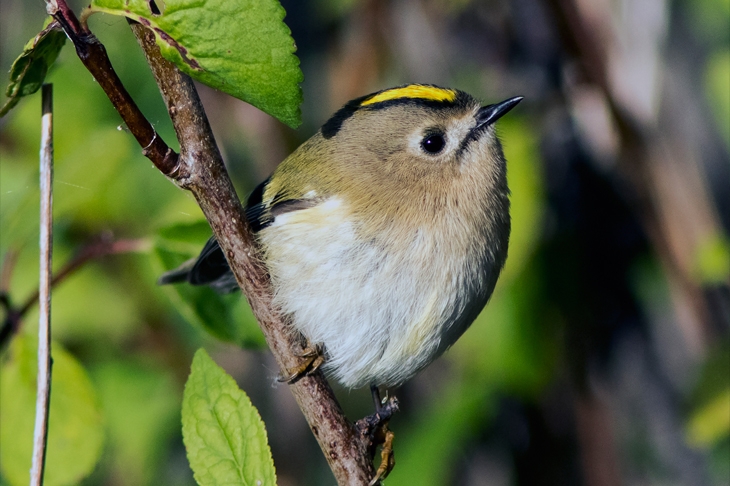Here’s a rum thing: you can tell the quality of a piece of land with your eyes closed. Your ears alone will tell you if it’s any good or not. And this, as it happens, was good land.
I was attempting to explain this concept to a group of disparate individuals, among them land-owners, gamekeepers, shoot-owners, farm workers, solicitors, an official from the National Farming Union, an RSPB warden, someone from Norfolk Wildlife Trust, a local councillor and a person who sells agricultural equipment.
So I delegated the explanation to a goldcrest. This is the smallest bird in the northern hemisphere and weighs about a quarter of an ounce. It was pelting down a shower of sweet golden notes from the top of a conifer. Higher, thinner than you can believe possible: now have you got it? Singing… now!
We were on the Raveningham Estate in Norfolk, managed by Jake Fiennes who believes that profitable farming can take place alongside seriously effective landscape-scale conservation; and he asked me to co-lead this walk with Peter Cowdrey, composer and founder of Planet Birdsong. It was an unlikely gathering for a bird walk. Some had never looked at a bird through binoculars in their lives, and few had deliberately listened to one. Now they could all listen to the voice of the land.
That goldcrest had become two, and two became three — and suddenly the entire wood was singing its heart out: we were close to double figures if not past it for goldcrests, all these tiny birds singing at the tops of their thin and tiny voices and scattering the woodland floor with song.
They feed between the pine-fronds in conifers, tiny birds subsisting on even tinier scraps of life. They wear a dashing Mohican haircut, and the crest shines pure gold when it catches the light. But they are hard birds to see, loving the forest canopy: if you want to find them, you need your ears.
Anyone who ever believed that farming and wildlife were by definition incompatible had every argument rebuffed in a few seconds of music. Though, alas, not everybody got it. It’s a sad fact that as we grow older, we tend to lose the higher notes. What children hear with ease, older people struggle even to notice.
It’s possible that the goldcrest — and its relative, the firecrest — are under-recorded. Many of the people who do bird surveying for the British Trust for Ornithology are retired, and some can no longer hear goldcrests.
But there were plenty of more easily accessible birds: the laid-back whistling of blackbird, the strident repetitions of song thrush, the wild skirling mistle thrush and the referee’s whistle of nuthatch. And using these simple mnemonics, I had the not inconsiderable joy of seeing faces light up. Bloody hell! He’s right! Got that one…
Many, perhaps most, of the people on the walk were birdsong agnostics. Few had witnessed people identifying birds without needing to see them — and it was almost like pulling them from a top hat. Willow warbler, got that? That lisping descent down the scale, sweetest thing you’ll ever hear.
Perhaps even the most hard-nosed found something of value: the idea that land itself can be understood by ear. After all, Peter and I could — blindfolded if necessary — tell them things they didn’t know about any piece of land they loved. Birds sing to claim a mate and a piece of land: land that will feed their chicks. The number and the variety of the singers in any one place tells you how good that land is at supplying protein. How rich it is. How alive it is.
We walked on, leaving the wood and moving on to farmland, with the great hedges that Jake loves and rich pools. Reed warbler: rhythmic, formal, ordered. And — quite incidentally — his song tells us that this is a great pond with a great patch of reeds.
No birding occasion is complete without a list, so Peter did the job and worked out that between eight and ten in the morning we had identified 41 species of bird and seen only 20 of them. Sometimes we set too much store on sight. We live in a world of noise and would go mad if we failed to shut it out: the rumble of the subway trains, the rattle of the taxis and the madding music they play at us in every bar and restaurant and even when we’re trying to buy a loaf of bread in the Co-op. So we get used to shutting our hearts to birdsong, relegating it to the background, ambient noise.
It was a pleasure, that fine morning, to brings birdsong back into the foreground; to see these unlikely people standing still as the goldcrest choir poured out the best of themselves from the woodland canopy, telling us this land was all right.






Comments